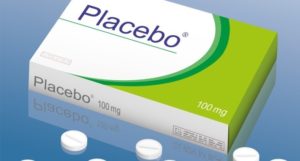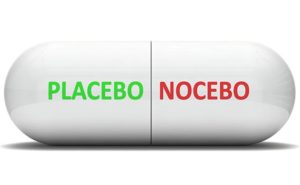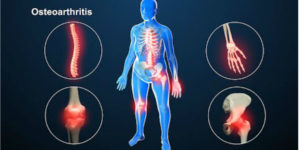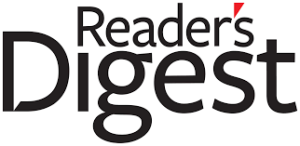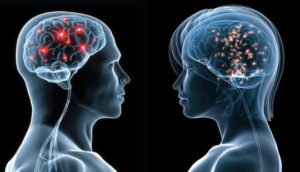Open Label Placebos (OLPs) are becoming a Thing, reinforced once more by Ted Kaptchuk’s placebo research group at Harvard Medical School. This article – Open-Label Placebo (OLP): Take This, It Is A Sugar Pill, It Will Help You! – provides us with a succinct update on the current clinical research scene, including valuable reference to two meta-studies which attempt to summarise the current state of our understanding. Importantly, the writers note that formal studies to date “have shown that while openly-applied placebos affect symptoms (depression, motor activity, pain, fatigue, etc.), none have yet shown that it may also affect disease biomarkers. Secondly, patient (self-)selection has to be tested for biases, e.g., whether the recruited patients are prone to respond to placebo, while others not recruited are not. Last but not least, it would be important to know how OLP compares to effective drug treatment of the same condition and in the same patients.”
All posts by Michael Doneman
Let’s Talk About Sex
Are aphrodisiacs placebos? What would happen if you spent a whole day eating them?
Read about Insider writer Sara Hendricks’s experiment with binge-eating foods claimed to have aphrodisiac properties, leading up to (spoiler alert) her conclusion that “at the end of the day, whether or not an aphrodisiac food works might simply depend on how much faith you have in the placebo effect. Aphrodisiacs, as it turns out, may very well be in the eye of the beholder.”
The Man Who Overdosed on Placebo
The Nocebo effect, dramatically illustrated …
Several years ago, a published case study describes a 26-year-old man who was taken to the emergency room. After arguing with his ex-girlfriend, he attempted suicide by swallowing 29 capsules of an experimental drug that he obtained from a clinical trial that was testing a new antidepressant. When he arrived at the hospital, he was sluggish, shaking, and sweating and had rapid breathing. His blood pressure was extremely low at 80/40, and his pulse was 110.
Doctors were successful at raising his blood pressure. Over the course of four hours, they injected him with 6 liters of saline solution. His blood pressure increased to 100/62, which is at the lower end of the normal range, but his pulse remained high at 106.
What finally cured the patient wasn’t anything the emergency room staff did. Instead, a doctor from the clinical trial arrived at the hospital. He told the patient that those antidepressant pills weren’t antidepressants because he had been randomized into the control arm of the trial. Yes, that’s right: He overdosed on placebos.
Oh.
Within 15 minutes, the patient’s blood pressure stabilized at 126/80, and his heart rate dropped to a perfectly normal 80 beats per minute.
Read the entire article here.
Patients may be experiencing placebo effect, but it’s still an effect: “Placebo is active treatment”
In Respect the Needle in OA (osteoarthritis), a rheumatologist says:
“… Dealing with osteoarthritis, both patients and their physicians often have a hard time understanding what to make of novel “cures” such as platelet-rich plasma (PRP), stem cell treatments, and so-called prolotherapy.
Although these are typically marketed as halting or reversing joint degeneration in OA, there is virtually no evidence that they actually do. Yet it’s impossible to discount the countless reports from patients that the treatments helped them in terms of pain and function.
The explanation may very well lie in the placebo effect, said Joel Block, MD, a well-known osteoarthritis specialist at Rush University, speaking at the American College of Rheumatology’s 2018 State of the Art Symposium.
But the thrust of Block’s 30-minute talk can be summed up in two words: So what?
The placebo effect is still an effect and a very important one, he argued repeatedly in addressing current knowledge about therapies, largely unregulated, now marketed nationwide in newspapers and online as “disease-modifying.”
It’s “extraordinarily strong” in osteoarthritis, Block said, for reasons that aren’t entirely clear. The experience from randomized trials is that one normally expects a 40% response rate with placebo with large effect sizes. Moreover, the improvements in patient-reported pain do not quickly disappear: the trial data indicates that placebo responses last beyond a year, he said.
“Placebo is active treatment,” Block said.
Placebos in the Reader’s Digest
You know that something’s popular when it pops up in the Reader’s Digest. This article comments on the “growing scientific interest in the placebo effect”, and notes:
Because placebos are believed to work only on condition of expectation of positive relief, they were considered to be good only for psychosomatic ailments and not real physical ailments.
But this does not seem to be borne out by recent studies, nor by years of experience of many people around the world. Placebos have been shown to result in the real cure of physical ailments such as a broken heel or torn ligament, not only psychological ones.
Much Ado … About that New Antidepressant Study
A recent ‘meta-study’ claims that placebo are NOT, in fact, on par with conventional antidepressant medications, as we have reported numerous times in this blog. It seems, however, that this study should be read with certain caveats, most particularly that “The review’s authors have acknowledged that almost 80% of the studies they analysed had been funded by the pharmaceuticals industry.” (Fawning Coverage of New Antidepressants Review Masks Key Caveats) Confirmation bias, anyone?
Sex Differences in the Placebo Effect?
Do males and females respond differently to the placebo effect? This review of 18 studies concludes that “1) males responded more strongly to placebo treatment, and females responded more strongly to nocebo treatment, and 2) males responded with larger placebo effects induced by verbal information, and females responded with larger nocebo effects induced by conditioning procedures.”
Why?
It seems “that … differences in the placebo and nocebo effects (are) probably caused by sex differences in stress, anxiety, and the endogenous opioid system.”
Download the study ‘A systematic review of sex differences in the placebo and the nocebo effect’
Words Matter
We know that communication matters – in regard to any human exchange and any human relationship. We can also consider the words we use, and the way we use them, in relation to their value as ‘placebo’. The effectiveness (or ineffectiveness) of communication can generate a placebo (or nocebo) effect, evidenced very clearly in the way that health practitioners interact with their clients, as illustrated in this article in the Irish Times, “Doctors Say One Thing. Patients Often Hear Something Else”.
“How patients frame questions and how doctors frame advice is an important element in successful health communication. Behavioural economists describe a phenomenon known as loss aversion: as humans, we are primed to feel losses nearly twice as heavily as we appreciate gains.
So for actions that we perceive as risky, a health message that presents the lack of action as an even greater risk is more effective. However, for actions that we don’t see as especially risky, presenting the action itself as beneficial has been shown to produce a better behavioural response.”
Do Worms Experience A Placebo Effect?
No, seriously, do they?
“Is the placebo effect biologically real? We’re not sure. But, if it is, then it is safe to say that it evolved over time, that it confers some survival advantage, and most importantly, it should also be able to be seen in other organisms. It has been reported in rats on occasion. But, what if we could study the placebo effect in lower organisms like fruit flies (Drosophila melanogaster) or worms (Caenorhabditis elegans)?
In the study of aging, these tiny, but powerful animals who age quickly, make it easier to do many experiments in a shorter period of time. Worms, in particular, are a fantastic model for the field of dietary restriction (DR), a programmed method of reducing calorie intake and the most scientifically sound method of extending lifespan. But in worms, the extended lifespan offered through DR is disrupted by the smell of food which tricks their bodies out of DR mode and stops the extension of life.”
Check out Simon C. Harvey, Chris J. Beedie, “Studying placebo effects in model organisms will help us understand them in humans” Biology Letters. 29 November 2017 or read the ACSH article here.
Want to think outside of the box? Try sniffing a placebo
We usually think of placebos as tools for therapy, or perhaps as marketing strategies, but here’s an idea about the placebo effect and creative thinking.
“The placebo effect is best known in medicine for making people feel better when they are given sham treatments. Now there is growing interest in using placebos to boost athletic and cognitive abilities.
Previous studies have found that people lift more weight and cycle harder when they take medicines with no active ingredients that are falsely labelled as performance-enhancing substances. Placebo pills have also been shown to improve scores in memory tests.
These findings prompted Lior Noy and Liron Rozenkrantz at the Weizmann Institute of Science in Israel to test whether the placebo effect can stimulate creativity too.
They asked 90 university students to sniff a substance that smelled of cinnamon. Half the students were informed that the substance had been designed to enhance creativity.
The participants then completed a series of tasks designed to test their creativity. One involved rearranging squares on a computer screen into different shapes. Another required them to think up new uses for everyday items like shoes, pins and buttons.
Those who were told the smelly substance increased creativity scored higher on measures of originality. For example, they came up with more unusual shape configurations and novel applications for the everyday items. “The improvements weren’t enough to turn you into the next Picasso, but they were significant,” says Noy.”
Read the full article here.


